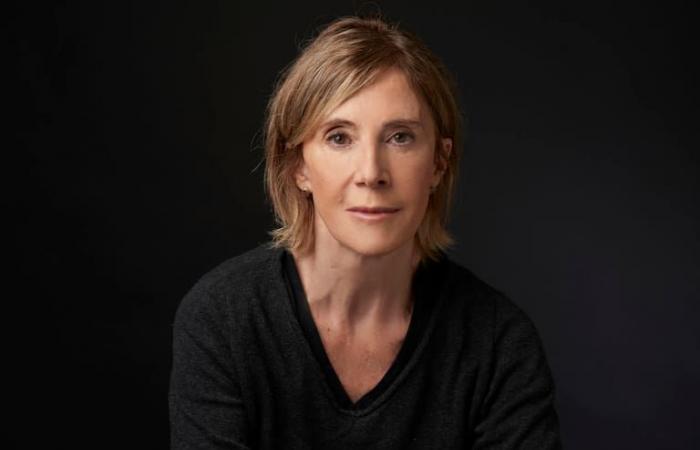Hear
This book is a collection of carefully apocryphal letters from those authors who, for so many Argentine children and young people, constituted the first library. These authors, it will be remembered, came bound in yellow covers – the famous Robin Hood collection – and we read them avidly, fascinated by the adventures of their many little orphans. There were, among others, Herman Melville, Emilio Salgari, Hans Christian Andersen, Louisa May Alcott, JM Barrie, Charles Dickens, RL Stevenson, Carlo Collodi, Lewis Carroll, Jean Webster, Johanna Spyri, Jonathan Swift, the Brothers Grimm, Jules Verne , Mark Twain, Charlotte Brontë, Rudyard Kipling, Jack London and Daniel Defoe. What a marvel of literary DNA!
I have allowed myself, as appropriate, to be arbitrary: among all the authors in the collection, I chose only those who had the most impact on me, leaving aside others that I did not read, or that did not interest me at the time. I also included three who, without appearing in it, were fundamental in my adolescence: Mary Shelley, Edgar Allan Poe and JD Salinger.
The letters themselves, although they are shamelessly invented, do not rule out the hidden quote nor do they try to disguise a close link with the biographical, historical and social circumstances that surrounded them. Nor are the recipients restricted to a single role: sometimes, they are real-life people; others, figures who perhaps could have met but did not (such as Louisa May Alcott and Emily Dickinson); others, finally, correspondents that are impossible because they are anachronistic. I even wrote letters from the author to his character or from the character to his author.
There is, however, a common thread and that thread is, without a doubt, the inveterate reflection that each letter undertakes, almost viciously, about the costs of literary activity. The rest are the more or less noisy forms of this reflection, the themes that exacerbate or mask it: displacement as epic gestures, the question about the quality of pain, the mirages of ambition, the great anomaly of love, the shadows of the mental night and, in general, the bewilderment in the face of “difficult times”.
Writing them was for me, therefore, a double reward: not only did I spend a year immersed in the books that marked me as a small reader, but I was able to get closer, through interposed voices, to the most dizzying edges of those same questions that I ask myself. for a long time, with increasing urgency.
Getting lost, wrote Clarice Lispector, is a dangerous finding. I would like to think that these letters are neither reluctant nor immune to that promise, that they do not ignore it or fear it, that they are capable of accepting, in their minimal setting of scenes, the furtive miracle of that grace.
Mary Shelley
Villa Diodati, April 18, 1840
Mother:
This letter has no beginning or end. I have done nothing but write it all my life, trying to reach you, to paste fruitless fragments to put together your figure, to be myself a theater of shadows so that you could materialize in me.
You will see that I find myself, once again, on the banks of the Bellerive, in that dwelling nestled in the Alps where I wrote, more than twenty years ago, my only true book.
I have now returned with my last remaining child. Not to revel in the memory of that luxury of sensations that was my youth but to face a late intuition: what I wrote then, without knowing it, knew more about my life – past and future – than I did. Everything, absolutely everything that happened afterwards, appears in those pages as a premonition: my lifelong effort to resurrect you, my anger as an orphan, the impious work of my arts, the serial death of my loved ones.
Do you realize, mother? I became the author of my own evils. And, from then on, I was condemned to read the story of my misfortune, as if I were my own vampire.
The construction of a monster: how could I come up with such a tremendous idea?
I would have wanted to impress the poets, always averse to the triviality of prose, or even to defeat them in their nocturnal ardor, their flirtation with livid beauty. I didn’t know it then. He couldn’t know that in the end of such audacity, he would only gain a loss.
I was young, dedicated and blonde. He came from a poetic and political home, where abysmal, outlawed, wonderful beings came. What did it matter to me that Byron lived in the strictest adultery; that Claire allowed herself to be called a “damn bitch” by him, or that the naive and annoying Polidori claimed powers over everyone? I flourished in the marital morning, I had my own elf who took me, beyond Switzerland or the world, to lots of places where we read Livy, Tacitus and Virgil together. He urged me to achieve literary prestige, to decipher the secrets of heaven and earth. What happiness! How much euphoria in that winter of my sheets!
I look at everything and see the crystalline lake and the sparkling peaks again, and the small port where we moored the boat. Nothing has remained of that time. Very soon misfortunes occur. My baby. My babies.
One by one, they were torn from me by the most serious evils. Then the father, the sister, the husband. The tomb, that innumerable conclave presided over by you forever. I was surrounded by dull lips.
Maybe I’m delirious (I don’t think so). The memory destroys me. No one to clean up what I broke. Any sound startles me, as if announcing the messenger of a new misfortune. Am I the same one who lingered here, slow in the shadows? Me, the elderly companion of my dead? My head hurts. I no longer wait for the reality prize. How weak I feel! This was, perhaps, the amniotic paradise. A void surrounded by black forests, arrogant deer and ruins perched on precipices, beyond all finis terrae. If Shelley could see me in these paroxysms of anguish, if she could weigh my chilled soul, she would celebrate my delayed arrival into the Poetry of Nature.
Why don’t I get married again, like you? Never.
On my tombstone they will write: Mary Shelley. It’s such a beautiful name, I won’t give it up for anything. Also, I swear at night, I will never be a defeated affable.
I will see you again in the region of mists, mother. There you can answer me, be yourself a ship that capsizes, without features on your face. I will listen to you respectfully, forever at odds with existence.
Yours most affectionately,
Mary.






